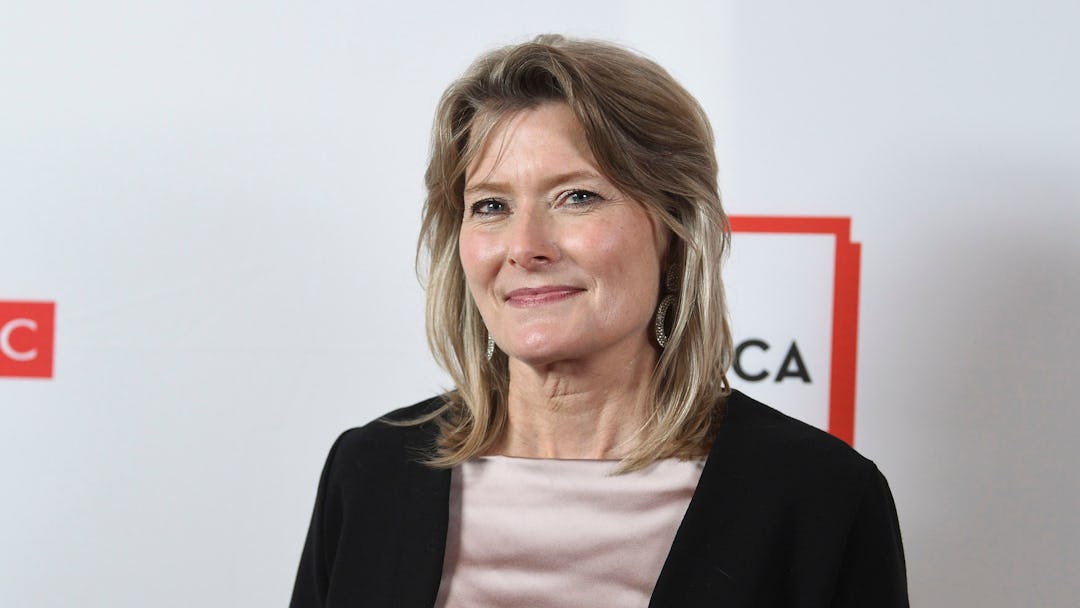Jennifer Egan invented Facebook. Jennifer Egan knew you were going to become obsessed with your phone way back when you still had some Nokia flip thing in your pocket. Jennifer Egan’s written about babies swiping at devices in the future. Over the course of four novels, including 2011’s Pultizer Prize-winning A Visit From the Goon Squad, one short story collection, and some journalism, Egan has proven herself to be weirdly, oddly, and consistently prescient about what the future holds. But will she ever be spoken of in the same breath as your techno-doomsday prophets like William Gibson?
Beyond Egan’s accurate and creepily correct predictions regarding our future obsessions and interpretations of technology, she also happens to be one of the most formally audacious fiction writers working today. Instead of bemoaning a tool like Twitter as a sign of the end times, she wrote a story, “Black Box,” that was serialized on The New Yorker‘s Twitter account and published in full in the magazine. Its character limit-friendly sentences included psychologically rich insights like this one: “When you succeed, a certain sharpness will go out of his eyes.” Goon Squad‘s PowerPoint chapter, “Great Rock and Roll Pauses,” will break your heart.
Egan, who has a birthday this weekend, isn’t afraid to engage with technology on a formal level or on an ideological level. She is at her creepiest in 2001’s Look at Me, a book that’s about a 35-year-old model on the downswing who ruins her face in a car crash. But as Charlotte’s face goes, she finds herself in a very different world. She’s approached by a dot-com company to star in a new reality show called Ordinary People, where she would be followed around 24 hours a day, doing things both exciting and banal. Ordinary People would function as a social network and reality show at the same time. The book was an accurate, pre-Facebook imaging of how technology becomes just one more tool in the creation of a person’s image, privileging the surface over the richer realities of identity. The CEO who offers Charlotte this deal says, “TV tries to satisfy that, books, movies – they try, but they’re all so lame – so mediated! They’re just not real enough.”
For The Keep, her twisting 2006 narrative that starts with two men who meet at an old European castle, the key is that one of them, Danny, is super-obsessed with his phone. He can’t let it go. He brings a satellite dish to the castle so he won’t miss any calls. We may have been a bit obsessed with our flip phones in 2006, but nearly ten years later, we’re all Danny. There are camps where people “detox” from technology. What was lightly satirical is now the stupid truth.
“Pure Language,” the last chapter of her masterpiece, A Visit to the Goon Squad, takes place several decades in the future. It’s there that Egan shows her mildly terrifying sci-fi vision of where technology is going, while simultaneously giving readers the literary equivalent of the last shot of a Wes Anderson film, where we get to see some of the characters we loved one last time. Her vision of New York in the future is terrifically possible and prophetic: there is a water wall protecting Manhattan from its rivers; music has evolved into its own digitized medium specifically targeted to consumers — in some cases babies — who can swipe on handsets and pick the songs that soothe them; and native advertising for web 2.0 has become “parroting,” where people enthuse about a product via a handset… and, yeah, that’s basically true these days.
Egan has been quiet since Goon Squad took us on its crazy ride three and a half years ago, outside of contributing the occasional short story (like “Black Box”). Whatever her next book is, it’s sure to be “imagining forward,” as she put it in an interview with the website BookBrowse. Her works are wildly divergent, mostly unified by her commitment to experiments, satire, and an acute eye on the world that we live in today — but her unerring eye for the future may be the thing that gives her books lasting weight.
